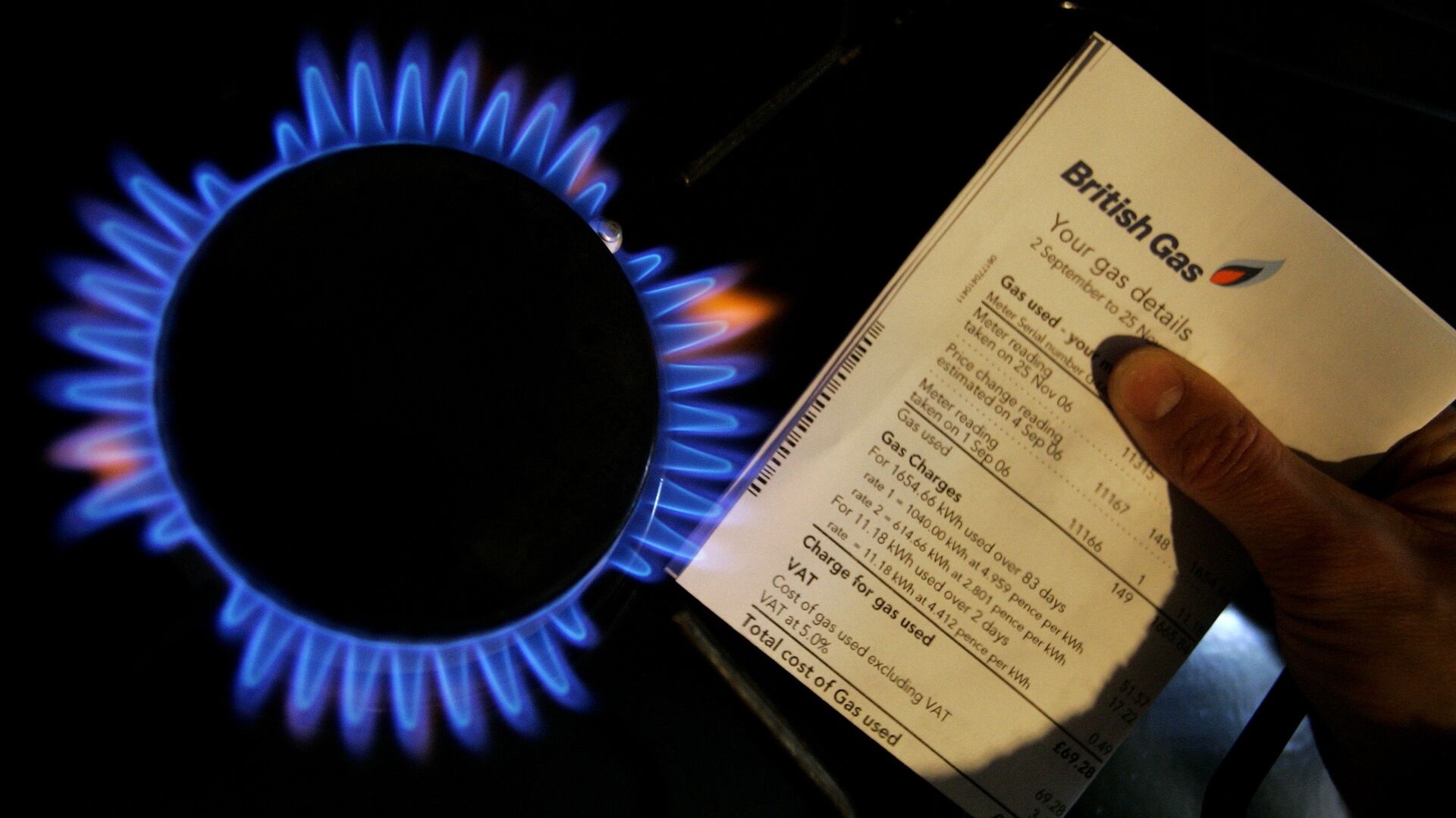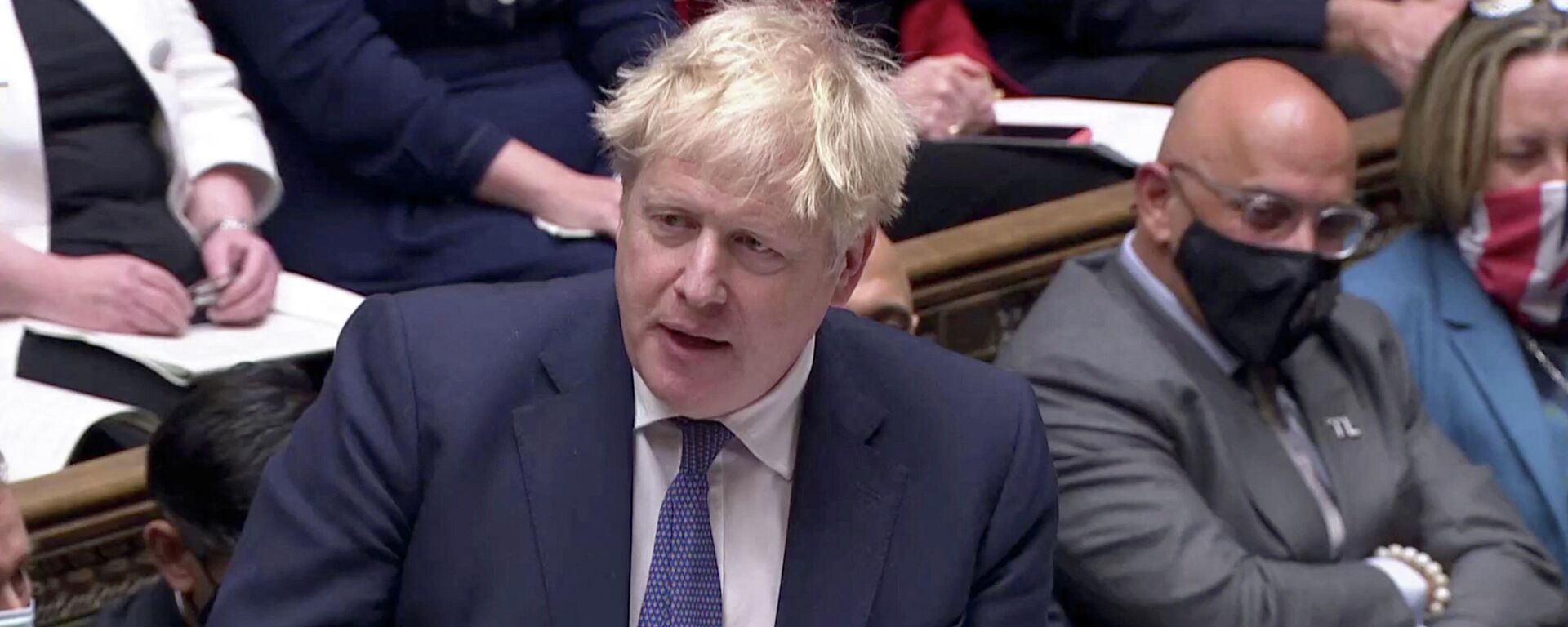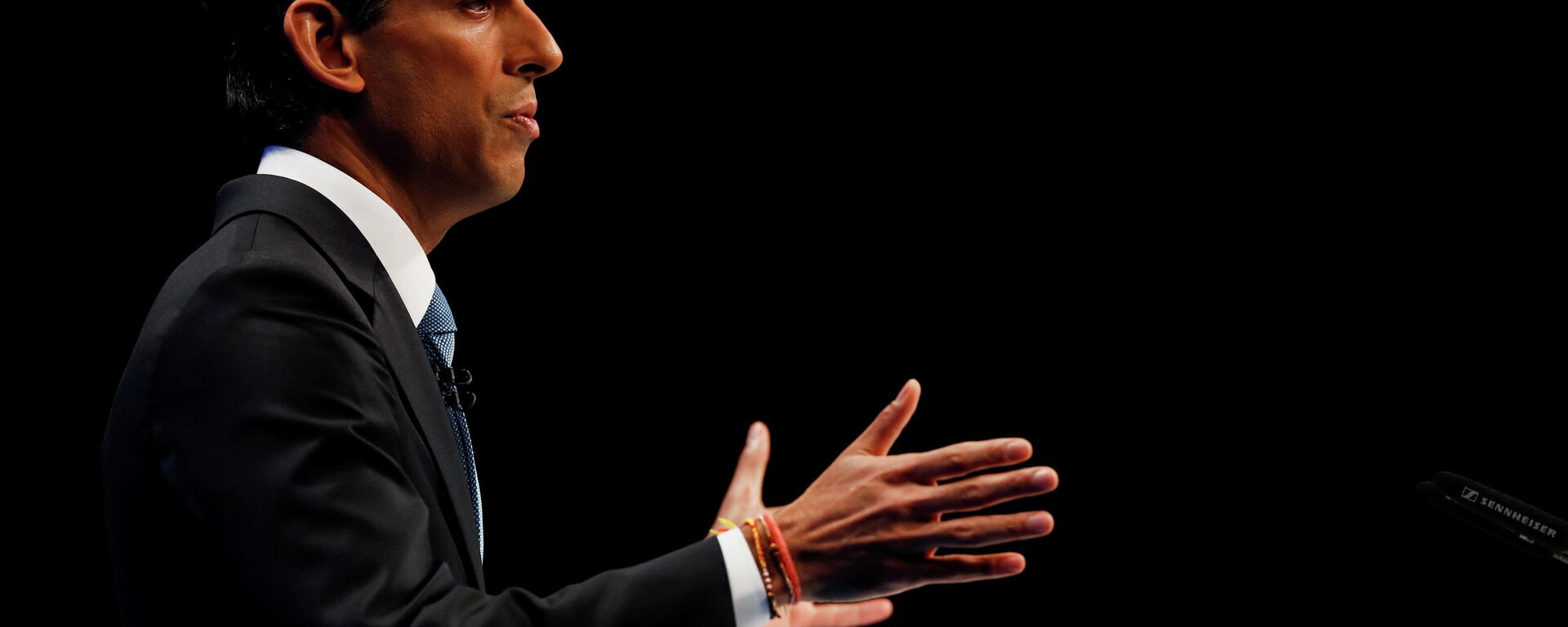Labour Seeks to Force Vote on Scrapping VAT on Energy Bills to Tackle Cost-of-Living Crisis
07:36 GMT 11.01.2022 (Updated: 15:17 GMT 28.05.2023)

© AP Photo / Kirsty Wigglesworth
Subscribe
Amid forecasts that rising wholesale costs in the UK will force household fuel bills to skyrocket in April, when the latest change to the energy price cap takes effect, Boris Johnson's government has come under pressure to act to alleviate cost of living pressures.
The UK Labour Party is gearing up to challenge MPs to back plans to slash VAT on energy bills on Tuesday during the Opposition Day debate, according to the opposition’s statement.
The party will put forward a motion which, if passed, would make it binding, forcing MPs to debate the proposals tailored to address the “growing cost-of-living crisis” in Parliament on 1 February.
“The Government and all the Tory MPs who have previously backed a VAT cut on home energy bills should follow through with their promises and vote with Labour today to scrap the tax for a year, as hard-working people face a growing cost-of- living crisis,” said Labour’s shadow climate change and net zero secretary Ed Miliband.
The Conservatives have failed on energy and working families are footing the bill.
— The Labour Party (@UKLabour) January 10, 2022
Labour would take fully-funded measures to reduce price rises saving most households around £200 or more.
Back Labour's plan to secure your family's income today. https://t.co/AtsNmT9otw
Labour’s proposed £6.6bn plan to ease the cost of living presupposes removing sales tax on bills for a year and a windfall tax on North Sea oil and gas producers against the backdrop of rising energy prices.
Fossil fuel giants would be expected to contribute to funding the proposals through a year-long increase to their corporation tax of 10%.
Families, pensioners and businesses are paying the price for the Conservatives’ cost-of-living crisis.
— The Labour Party (@UKLabour) January 10, 2022
Labour would cut VAT to keep bills down, and support the hardest hit industries. pic.twitter.com/AIxLfOUTxO
This, claims the opposition, would allow UK households to save hundreds of pounds on their energy costs, with the average bill slashed by around £200 ($271). The party also advocates expanding and increasing the warm homes discount for those most at risk to 9.3 million people.
The latter is a scheme granting a one-off £140 discount on energy bills given to one million people on pension credit and one million families on working age benefits in England and Wales.
Boris Johnson’s government has already announced plans to expand this scheme to around three million people this year while hiking the rebate to £150.
VAT Cut
The Labour Party has been calling on Tory MPs to follow through on previous pledges to scrap the tax off home energy bills. When the UK was a member of the EU, VAT on domestic energy had to be at least 5%.
During the 2016 EU referendum campaign, both Boris Johnson and Michael Gove, who had run to become leader of the Conservative Party, indicated that VAT would be cut on domestic fuel if the UK voted to leave the EU bloc.
They had vowed that "fuel bills will be lower for everyone", according to the Sun, underscoring that "when we Vote Leave, we will be able to scrap this unfair and damaging tax".
In May 2016 Michael Gove was cited by Sky News as saying: "I think when we take back control of the millions we give to the European Union, this [scrapping VAT on energy bills] has to be the top priority."
However, despite bills predicted to increase by 50 per cent to almost £2,000 from April, the government has so far resisted cutting the VAT.
“The argument is that it’s a bit of a blunt instrument and the difficulty is you end up cutting fuel bills for a lot of people who perhaps don’t need the support in quite the direct way that we need to give it. We need to help people who are in fuel poverty the most,” said Johnson during a Downing Street press conference on 4 January.
Nadhim Zahawi, the Education Secretary, dismissed Labour’s proposals, saying “a windfall tax on oil and gas companies that are already struggling in the North Sea is never going to cut it.”
During Prime Minister's Questions on 5 January, Shadow Chancellor Angela Rayner, standing in for Opposition Leader Sir Keir Starmer, accosted Boris Johnson over his refusal to consider a cut to VAT to help hard-pressed families amid surging energy prices.
As she claimed that “working families were picking up the tab for his incompetence,” Johnson retorted that the opposition had “the effrontery, having campaigned to remain in the European Union... to come to this House of Commons and say that they want to cut VAT on fuel."
‘Cost-of-Living’ Crisis
Prices of thousands of everyday items have sky-rocketed since last year in the UK due to rising inflation. With increases in the cost of goods in supermarkets coming at the same time as hikes in energy bills and taxes, there having been growing fears that numerous households will face financial difficulties in 2022.
According to Uswitch price comparison site, cutting VAT on energy bills would save the average household on a standard variable tariff slightly over £63 a year, based on the current price cap. However, as the price cap is forecast to climb, with the average annual bill predicted to hit £2,000 from April, cutting VAT could save an annual £100. Scrapping the 5% tax would cost the government about £1.7bn, according to Her Majesty's Revenue and Customs (HMRC.)
Prime Minister Boris Johnson told reporters during his visit to a pharmacy in Uxbridge on Monday that he "understands" how people are struggling and he was "looking at what we can do" to help.
“There’s a general inflationary pressure caused by the world economy coming back from Covid, and in the US, I think, inflation is likely to be the highest it’s been since the early 80s. The eurozone is experiencing exactly the same thing… We’ve got to help people, particularly people on low incomes, we’ve got to help people with the cost of their fuel, and that’s what we’re doing,” said Johnson.
According to No 10’s official spokesman, an array of measures was in place to help “those most in need” and “abate costs on things like energy prices.” Measures such as “the UC (Universal Credit) taper, the rise in the minimum wage, the energy price cap, …the half a billion pound Household Support Fund” were singled out.


